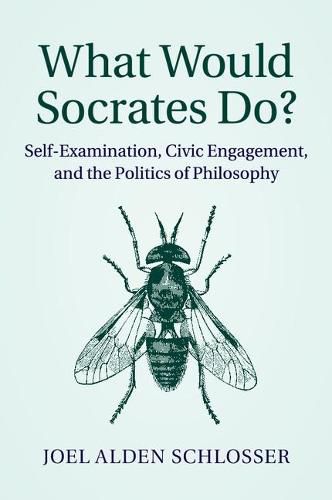Readings Newsletter
Become a Readings Member to make your shopping experience even easier.
Sign in or sign up for free!
You’re not far away from qualifying for FREE standard shipping within Australia
You’ve qualified for FREE standard shipping within Australia
The cart is loading…






Socrates continues to be an extremely influential force to this day; his work is featured prominently in the work of contemporary thinkers ranging from Hannah Arendt and Leo Strauss, to Michel Foucault and Jacques Ranciere. Intervening in this discussion, What Would Socrates Do? reconstructs Socrates’ philosophy in ancient Athens to show its promise of empowering citizens and non-citizens alike. By drawing them into collective practices of dialogue and reflection, philosophy can help people to become thinking, acting beings more capable of fully realizing the promises of political life. At the same time, however, Joel Alden Schlosser shows how these practices’ commitment to interrogation keeps philosophy at a distance from the democratic status quo, creating a dissonance with conventional forms of politics that opens space for new forms of participation and critical contestation of extant ones.
$9.00 standard shipping within Australia
FREE standard shipping within Australia for orders over $100.00
Express & International shipping calculated at checkout
Socrates continues to be an extremely influential force to this day; his work is featured prominently in the work of contemporary thinkers ranging from Hannah Arendt and Leo Strauss, to Michel Foucault and Jacques Ranciere. Intervening in this discussion, What Would Socrates Do? reconstructs Socrates’ philosophy in ancient Athens to show its promise of empowering citizens and non-citizens alike. By drawing them into collective practices of dialogue and reflection, philosophy can help people to become thinking, acting beings more capable of fully realizing the promises of political life. At the same time, however, Joel Alden Schlosser shows how these practices’ commitment to interrogation keeps philosophy at a distance from the democratic status quo, creating a dissonance with conventional forms of politics that opens space for new forms of participation and critical contestation of extant ones.